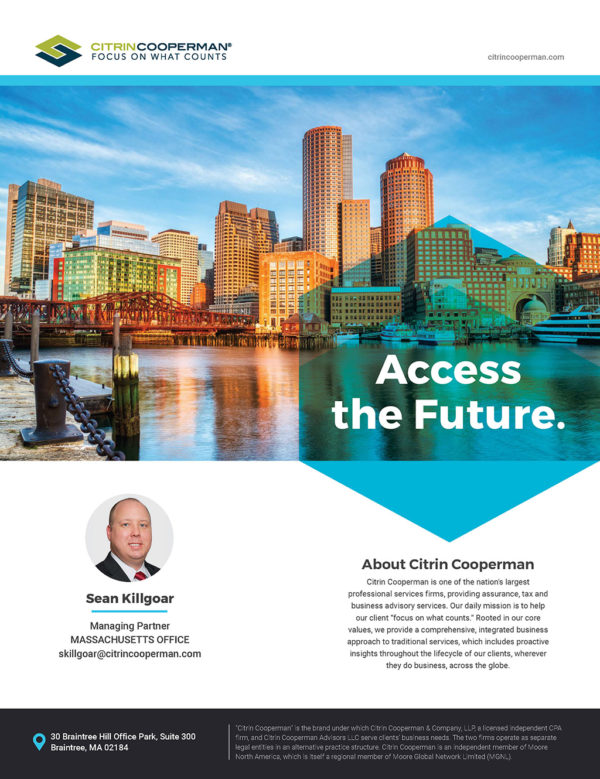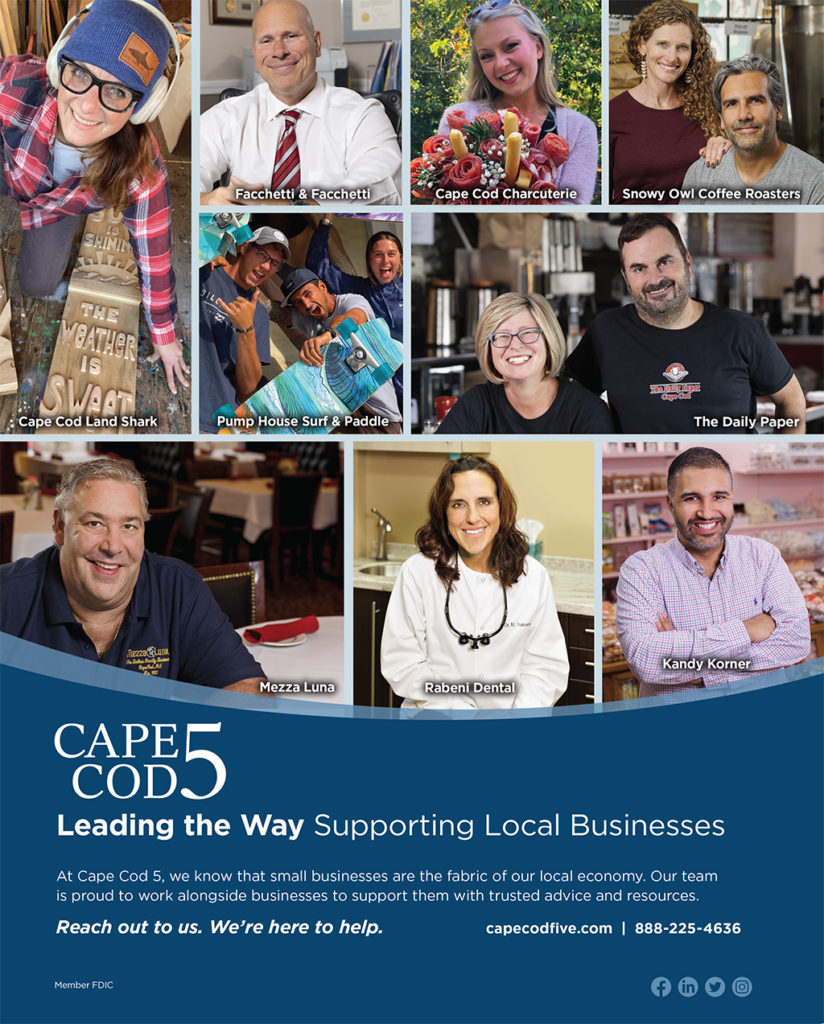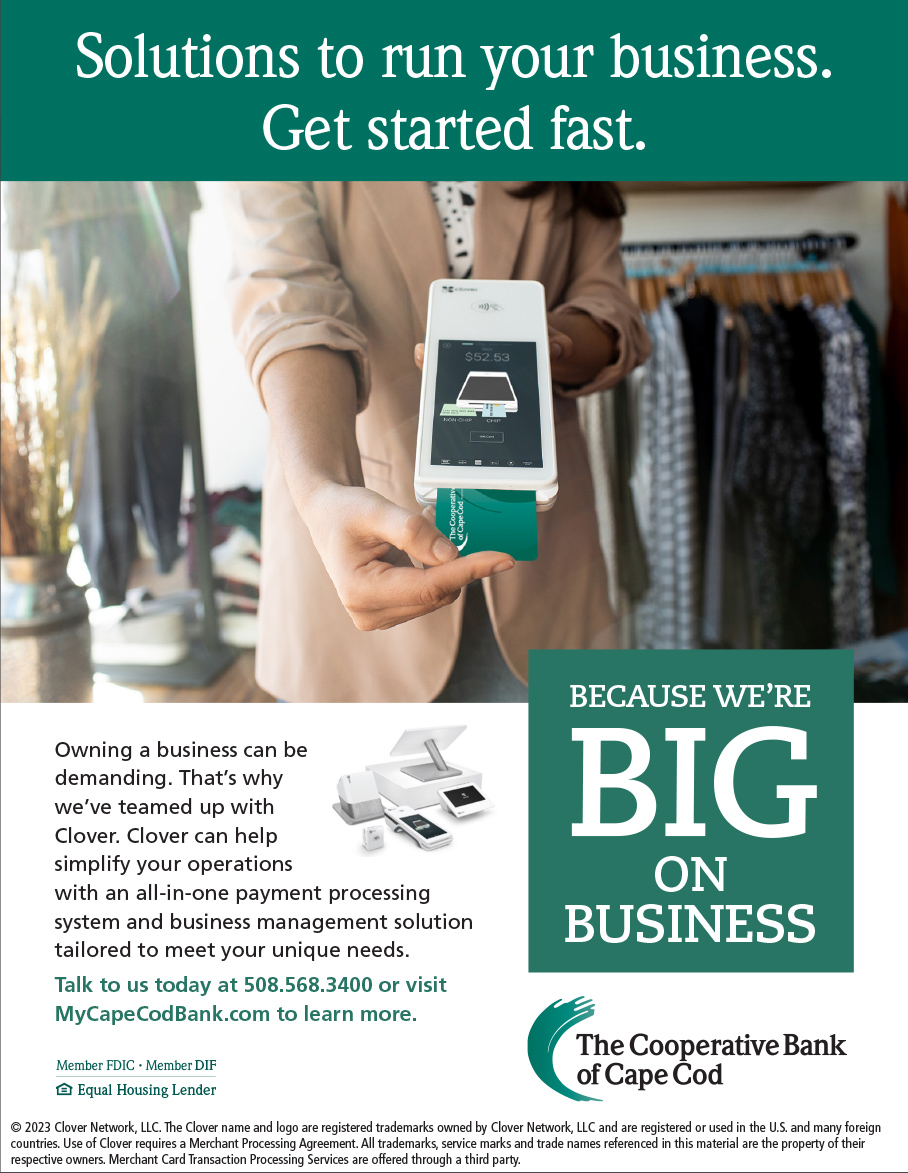
Celebrating Black History Month
How fortunate we are to have a local organization dedicated to promoting racial equity by providing accessible resources and education that enhance visibility and increase sustainable ownership opportunities for communities of color.
Amplify POC (People of Color) was started in 2020 by Tara Vargas Wallace, after the murders of George Floyd, Breonna Taylor, Ahmaud Arbery and others. “The community was reaching out to me, looking for ways to support the Black and brown community,” recalls Wallace.
The nonprofit offers resources and education to businesses owned by people of color and, since its inception. has helped countless start-ups get the help they need to succeed.
Also in this issue:
Our second annual Marketing Summit takes place Feb. 28 in Plymouth, and we chatted with the marketing experts who will offer tips for jump-starting your business. Meet the presenters and, better yet, attend this great event! For info, email cara@capeplymouthbusiness.com.
Read about how the proposed federal ban on Non-Compete Agreements could affect businesses and employees, as explained by our legal experts at Conn Kavanaugh, and some accounting tips as we head into tax season from The Cooperative Bank of Cape Cod.
Thanks for your support!
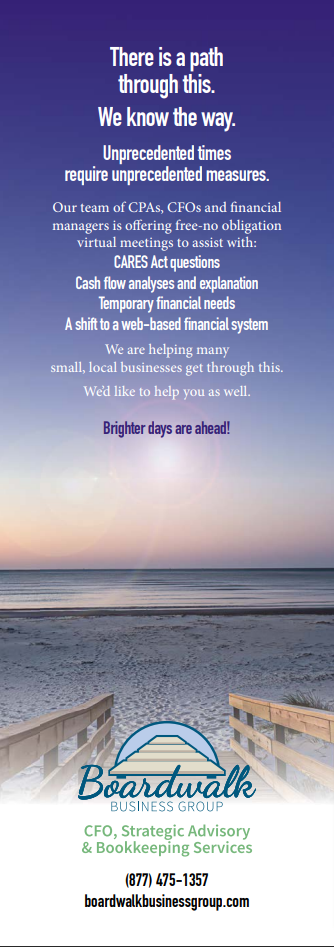


Black-owned Businesses Are On The Rise
According to a report by U.S News & World Report, the number of Black-owned businesses has been on the rise. While many, unfortunately, took a tumble as the pandemic began, they have been making a comeback across the country, including here on Cape Cod and the South Shore. Here are some of the numbers.
1.2 million – Just over 1.2 million African Americans were self-employed in February 2022, compared to slightly under 1.1 million in February 2020.
26% – Black owners have accounted for 26 percent of all websites created for new businesses since the pandemic began, compared to 15 percent before.
28% – The number of Black small-business owners was 28 percent higher in the third quarter of 2021 than it was pre-pandemic, compared to 19 percent for Latino business owners and 5 percent for white and Asian business owners.
38% – Nearly 38 percent of Black businesses are in healthcare and social assistance, repair and maintenance, and personal and laundry services. Other categories include advertising firms, auto dealerships, consulting services, restaurants, beauty care (barber shops/beauty salons), and more.
$23.9 billion – Of the 2 million Black businesses, only about 107,000 of them have actual employees. Such firms employ more than 920,000 people with a total annual payroll of $23.9 billion.
SOURCES: BLACKBUSINESS.COM, USNEWS.COM

Around the Region
Town of Duxbury
SOURCE: DATA.CENSUS.GOV, CENSUSREPORTER.ORG
Form of Government: Open Town Meeting
Incorporated: 1637
Demographics:
Total population: 16,116
Female: 51.8%
Male: 48.2%
White: 96.7%
Black: 0.4%
American Indian or Alaska Native: 0.1%
Asian: 1.2%
Hispanic or Latino: 1%
Two or more races: 1.4%
Family households: 6,092
Average household size: 2.60
Median household income: $130,260
Per capita income: $71,321
Mean travel time to work: 37.5 minutes
Educational Attainment (age 25+)
High school graduate: 96.1%
Bachelor’s degree or higher: 70.7%

Fishing Alliance, Cape Cod Tech Forge Partnership
Substitute teacher David Carey walked the docks at Saquatucket Harbor in Harwich past a dozen or so fishing boats tied up because of high winds.
“This is a real fishing fleet,” he said, surprised.
The success and strength of the Cape’s commercial fishing fleet can seem like a well-kept secret, but a partnership between the marine service program at Cape Cod Regional Technical High School and the Cape Cod Commercial Fishermen’s Alliance aims to change that.
Alex Riker, lead instructor, has done several workshops where students are introduced to various fisheries – from longlining to gillnetting to harpooning tuna – and ask captains questions.
The most recent one was earlier this month and led by Cam Smith, who owns the scalloper Three Sons, and Stephanie Sykes, outreach coordinator with the Fishermen’s Alliance.
Sophomores and seniors got a boat tour, learned how a dredge works (and helped repair it) as well as receiving safety information and a sense of the business, including the 2 a.m. to 10 p.m. workday Smith just put in.
“The dedication, to be honest – that sticks out to me,” senior Eddie Clifford said. “I admire that.”
The art of shucking scallops and a boat ride to meet a scallop buyer were also part of the workshop as Cam’s brother, Adam, who fishes with their father, Mark, on F/V Godzilla, also talked to the students about making a career as a commercial fisherman.
“It is a cool industry. You can make a living at it for sure,” concluded senior Julian Gabriel.
SOURCE: CAPECODFISHERMEN.ORG
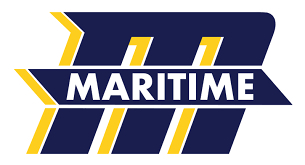
Mass Maritime Academy Has Presence At National Summit
Captain R. Michael Burns Jr., executive director of the Maritime Center for Responsible Energy at Massachusetts Maritime Academy (www.maritime.edu) in Buzzards Bay, was a featured speaker during the Jan. 19-20 annual OSW O&M/Health & Safety Summit held in New Orleans, Louisiana.
The summit, hosted by The Business Network for Offshore Wind, focused on how the offshore wind industry can ensure that safety remains a high-level priority as the industry develops and grows.
Burns, one of several speakers at the summit, contributed to the discussion that focused on “Strengthening Local Communities: Workforce Development Needs in O&M” (Operations and Maintenance), which highlighted how public officials, developers, supply chain companies, and unions can prepare their communities for the opportunities offshore wind brings. He was joined by Dr. Tamika Jacques, director of workforce development and supply chain at Avangrid, and Lori LeBlanc, principal consultant at ERM/Southeast LA Economic Council. Ben Etherton, strategic advisor for Arcon Training Center, moderated the discussion.
Additionally, Mauricio Guzman, business development manager – renewables for RelyOn Nutec, the Academy’s partner for offshore wind, was one of several market entrepreneurs who talked about how to meet the challenges associated with quickly training tens of thousands of new workers.
The summit also featured several Academy alumni, including Will Kenyon (2007), head of QHSE, Development, and EPC – Americas for Ørsted, who spoke on “The Need for Transparency: Data-Sharing to Improve Health and Safety”; and Dustin Varnell (2003, MS2018), U.S. country manager for Osbit, and Julie Shebroe (2012), account manager and business development, Northstar Marine, Inc., who both spoke about “Safety on the Sea: A Look at Vessel Operational Safety in Construction and O&M.”
“It was a privilege to have the opportunity to speak at this important summit and be among so many leaders in the growing offshore wind industry,” said Burns, noting that the operations and maintenance of offshore wind farms is poised to be a significant economic driver for many coastal communities.
SOURCE:MMA.EDU


Meet Jamie Diehl, Founder, Doula, Birth Vibe LLC
What is Birth Vibe LLC?
We are an all-inclusive team of doulas, photographers and birth professionals who assist families alongside their preconception-to-postpartum journey. By listening, educating and respecting preferences, families can feel confident to trust their bodies, their intuition and their providers for a safe and supported, positive milestone.
When and why did you establish Birth Vibe?
I was 19 years old when I was pregnant with my first baby. In the first trimester of pregnancy, I suffered from a severe form of morning sickness called hyperemesis gravidarum, a condition that affects 2 percent of pregnant women. I was looking forward to giving birth. Unfortunately, this too was an unsettling experience. My providers didn’t give me the opportunity to make informed decisions and I struggled to find my voice to advocate for myself. After my discharge from the hospital, it was difficult to find support for breastfeeding, general education or support for new or young parents. This experience was supposed to be life-changing, empowering, but I was left with guilt, shame and postpartum depression.
Ten years later, when I became pregnant with my son, I started educating myself on everything surrounding pregnancy, birth and babies. My partner and I hired a team of midwives, and a postpartum doula. It brought a change of pace, support, education and advocacy, which was exactly what I needed to feel empowered and safe. Giving birth is never a fun time, but giving options and respect to families can turn a traumatic experience into an empowering one.
This moment was the conception of Birth Vibe and I immediately started training as a birth doula through Doulas of North America (DONA).
I’ve always wanted to be an entrepreneur, but didnt know where to begin! I learned about the EforAll Accelerator program, a mentoring program that pushes you to complete your goals and elevates your business into the next phase.
Who are your clients?
Pregnant and expecting families of any age, with diverse backgrounds. We serve mothers and their families who give birth at home or in the hospital of their choice, across Provincetown, Cape Cod, Sagamore, Plymouth, the South Coast, the South Shore and beyond.
We offer a variety of support that is within reach to any household budget. By working towards grant funding and community partnerships, we hope to make even more services available to our direct communities. We currently offer a flexible payment structure to underserved and often discriminated-against communities (BIPOC, LGBTQ+, Low Income and Families in Recovery). Everyone should have access to education, advocacy and quality care.
What is unique about Birth Vibe?
We are a one-stop pregnancy, birth and baby resource center!
We take pride in our high standards, and are always looking for ways to make a difference for birthing families. We work locally and virtually with families who need support, and organizations who assist with community funding, but also with legislation to get new laws made for a better maternal health outcome for all.
Our support services include Virtual Classes, Hypnobirthing Meditation, Birth Plan and Baby Registry Assistance, Nursery Organization and Nesting Support, Birth Coaching or Doula Support, Placenta Encapsulation or Gardening, Car Seat Safety, Babywearing and Cloth Diaper Support, Postpartum Doula and Overnight Support, Bengkung Belly Binding, Blessings and Healing Ceremonies, Parents and Infant Groups, Full Doula Coverage and additional resources for parents.
In addition, Birth Vibe offers photography sessions, capturing each new milestone, such as pregnancy announcements, showers and reveals, birth photography and more.
What is the best thing about your job?
Have you ever felt that divine sensation that the world put you right where you are meant to be? It’s the best feeling, and it’s exactly how I feel about Birth Vibe. I have always been a free-range individual, changing career paths multiple times in my young adult life. But I believe each one of those past opportunities shaped me into a multi-talented, career-driven individual with the tools and determination I needed to make Birth Vibe a success. Each step leads to genuine connections, new friends and a growing passion to improve birth experiences.
Plus, if you’ve never caught a whiff of that new baby smell, you won’t understand. Fun fact – babies release a chemical from the top of their head which triggers dopamine receptors in a way that promotes a calm in the caregiver. Rumor has it this sweet smell can be addicting and, while doulas are not actually sniffing new babies, we do get the opportunity to watch families grow, and hold their hands on this life-changing journey.
What’s next for Birth Vibe?
We are hosting ongoing classes each Saturday starting in February. The classes are taught by local birth professionals and are perfect for any expecting family, or as the perfect gift for a friend, family or upcoming baby shower! You can find out more information about the classes and purchase tickets at BirthVibe.Eventbrite.com.
We have availability and are still accepting birth and photography clients for Spring 2023. Email us to schedule your free consultation or to book services at Support@BirthVibe.org or visit www.BirthVibe.org.
Readers Choice – Voting Now Open
Now through Feb. 22, we will be accepting votes for your favorite local business. Where do you shop small? What place do you always chat about with your friends that’s a ‘”must try, or go-to”? We want to know! Innovators, game changers and trendsetters!
The WATCHLIST winners will be featured in our March edition, and will receive a special 2023 Watchlist Web Badge, and special marketing package!
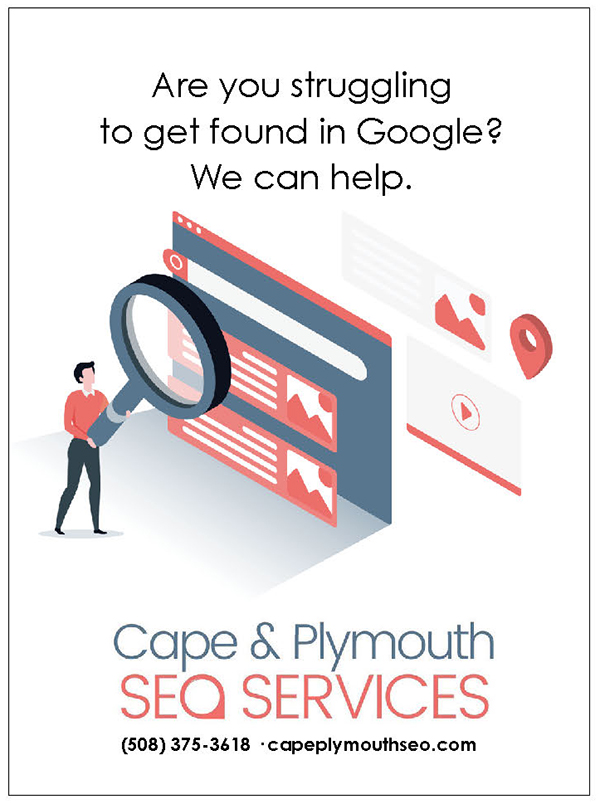


Jumpstart Your Marketing Plans With Tips From The Experts
By Carol K. Dumas
Is your marketing plan basically building off last year’s marketing plan?
C&PB Media’s second annual Marketing Summit on Feb. 28 aims to jumpstart your marketing through networking with Cape and Plymouth area businesses and a panel of experts who can shed light on the latest strategies to promote your business effectively.
Speakers will include Dale Shadbegian, C&PB Media, Hyannis; Nicole Porter, Monomoy Social Media, Harwich; Judy Crocker, Make You Known Marketing, Hyannis; Kevin Hennessey, Brabo Payroll Rockland; and Rachel Leone, Leone Marketing Solutions, Hingham.
Update That Profile
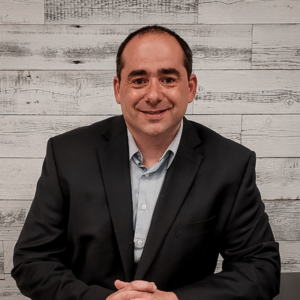
PB Media CEO Dale Shadbegian often helps clients with web strategies and his presentation will discuss the ins and outs of Google Business.
“A Google Business profile is a free service offered that allows business owners to control how their business is viewed in the Google search engine,” he explains. “Claiming and optimizing your profile helps searches understand what services you offer, and also improves your chances of being found by searches in your area looking for products and services a business offers.
Social Media

Monomoy Social Media’s Nicole Porter will be focusing on “10 Things You Can Do On Social Media in 2023 to Increase Business.” Porter’s company helps small businesses create awareness for their brands, connection and real conversation with their customers in order to drive traffic to websites, and brick-and-mortar locations to result in more sales.
“I plan to talk about how the increased focus on authenticity will only grow in 2023; people don’t want curated feeds any longer,” she notes. “Also, the focus is on conversation and community, with purpose-driven marketing. It’s important to be tied to a cause you believe in as an organization. Also, short-form videos (Reels, Tik Toks, YouTube Shorts) will continue to grow in popularity, making them very algorithm-friendly.”
She is a chocolatier-turned-digital marketer, and a mother of three sons. She co-owned Gone Chocolate in Osterville for a few years before opening up Beach Way Sweet Shop in Harwich Port.
“After getting a degree in marketing from Assumption College, I spent 10 years owning and marketing my own small chocolate and ice cream shops on Cape Cod. During this time people were constantly asking me, ‘How do you send all those great emails?’ or ‘I always see you on Facebook/Instagram; teach me.’”
After starting her family, she returned to her marketing roots and founded Monomoy Social Media.
Know Your Audience
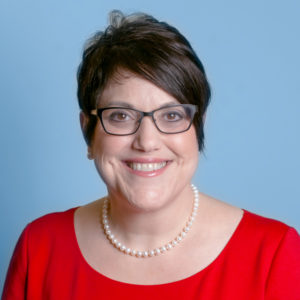
It’s never repetitive to revisit the question “Who is your audience?” says Judy Crocker of Make You Known Marketing. Her business helps small- to medium-sized companies answer the question, “What do you do well that not enough people know about?” Services include strategy and branding, social media, email marketing, media buying and graphic and web design.
“People are so busy telling people the features of their business but not the product,” she says. “Someone told me, ‘Don’t tell me about your grass seed, tell me about your lawn’.”
She will discuss the importance of knowing your audience, your consumer. “Who are you trying to convince to buy your product?”
Payrol & HR

Brabo Payroll specializes in payroll benefits and human resources services.
“We help companies to evaluate, acquire and implement technology to streamline their operation and better engage their teams,” says CEO Kevin Hennessey.
Hennessey is going to lead a training program about ChatGPT, a product by Open AI, an artificial intelligence company.
“It is an incredible tool that can help with creating content for advertising, drafting outlines for strategic plans and for getting a starting point on some legal documentation,” said Hennessey. “I will outline how to effectively interface with ChatGPT and some unique ways you can leverage it to tell your story and to streamline your company.”
Swag Swag Swag

Promotional swag carrying your business logo is an easy way to get your company’s name out there whether you’re attending a trade show, conference or other event.
“Every year, I start with a prediction post to guess which custom products will do the best for the upcoming year,” says Rachel Leone, president of Leone Marketing Solutions. “I feel like things are really starting to get back to our new normal and we are doing lots of promotional items for events and trade shows.”
Her top 10 picks for 2023 are:
- Stress balls
- Drinkware
- Cheap items – “One of the most requested items isn’t an item at all. Yes, we carry ‘cheap’ marketing giveaways for times when you need to give A LOT of items away. Promotional pens are the most popular within this category, but lip balms, hand sanitizer, webcam covers, mints, candies, and cell phone wallets all make my customers’ ‘favorites under $1’ list.”
- Sunglasses
- Custom-embroidered fleece jackets
- Coolers and lunch bags
- Flashlights
- Hand sanitizer products
- Yeti drinkware
- Beach balls – “They’re fun, affordable, and easy to distribute at conferences and special events. They’re great for parade throws or keepsakes at weddings and birthdays. Do you know that beach balls are ranked on TIME’s all-time greatest toy list?”
2023 C&PB Media Marketing Summit
Tuesday, Feb. 28, 9 a.m.-noon
Alden Park, Plymouth
Tickets: $35, Tables of 8, $240
Info: cara@capeplymouthbusiness.com
Take the ‘Shape the Cape’ Survey
Cape Cod Young Professionals has launched a 2023 Shape the Cape Survey which aims to: collect insights on key challenges that impact Cape Codders’ ability to live, work, and thrive in our region and identify innovative opportunities to support and sustain our workforce and our community into the future.
The Shape the Cape Survey covers a wide range of topics focused on challenges to and opportunities for retaining and sustaining Cape Cod’s young workforce and working families. Through the survey, respondents will have the opportunity to share their experiences and provide insights on key issues that impact our year-round workforce, including housing and early childhood education, job and professional advancement opportunities, remote work, technology, healthcare, and infrastructure.
The survey also provides an opportunity for respondents to share what they see as the most significant impediments to workforce recruitment and retention as well as creative strategies for ensuring a vibrant and resilient future for our region.
The survey results will be presented at CCYP’s Shape the Cape Summit on March 28, 2023, and a summary of the results will also be made available on CCYP’s website to provide important data for local and regional decision-making.
“Our region’s year-round workforce and working families on Cape Cod face unique challenges that were exacerbated by the economic impacts of the COVID-19 pandemic,” said Kristen Vose Clothier, CEO of CCYP. “Data collected through the 2023 Shape the Cape Survey will allow CCYP and our community partners across the Cape to develop innovative strategies and target resources to address priority needs and identify new opportunities for regional collaboration.”
This is CCYP’s second Shape the Cape Survey; more than 3,000 people responded in 2014 to the first survey.
All Cape Codders are encouraged to share input through the 2023 Shape the Cape Survey. As an additional incentive to participate, those who fill out the survey may choose to enter a drawing to win a giveaway package valued at $1,000+ loaded with gifts that celebrate Cape Cod businesses and nonprofits. The winner will be drawn at CCYP’s 2023 Shape the Cape Summit.
Fill out the survey here: https://www.surveymonkey.com/r/2023ShapetheCape
The results will be presented at CCYP’s Shape the Cape Summit on Tuesday, March 28, from 8:30 a.m. to 3:30 p.m. at the Sea Crest Beach Hotel, 350 Quaker Road, North Falmouth. This annual summit is Oopen to the public, whether or not you’re a CCYP member.
Advance registration required. For more information and to register:
capecodyoungprofessionals.org/events/shape-the-cape-summit
Early Bird Tickets will be on sale until Feb. 28. Tickets are $55 for CCYP members and $75 for nonmembers.
2023 C&PB Media Marketing Summit
Tuesday, Feb. 28, 9 a.m.-noon
Alden Park, Plymouth
Tickets: $35, Tables of 8, $240
Info: cara@capeplymouthbusiness.com


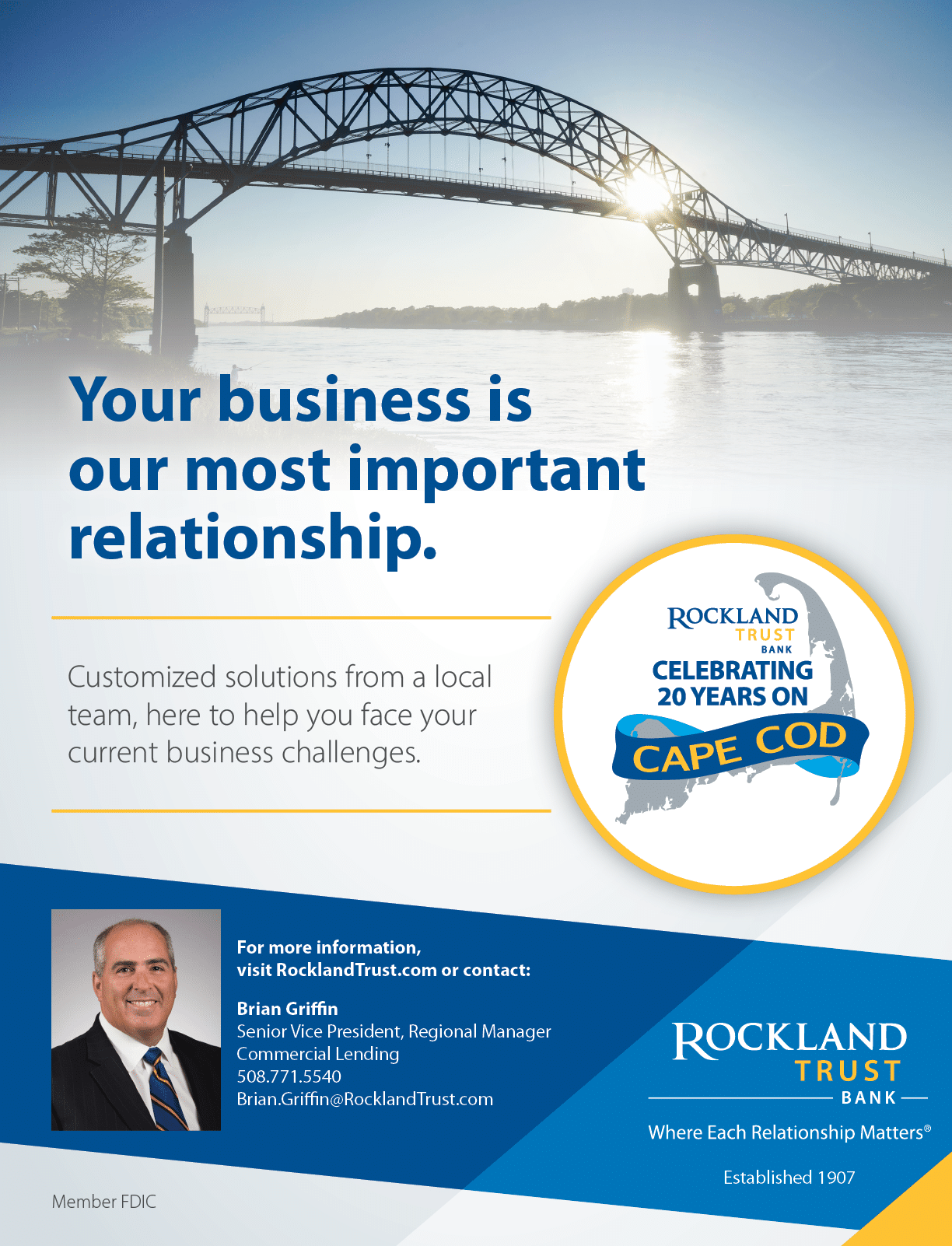

Effectively Building Your Brand

Building a brand is a challenge all businesses, large and small, face as they grow. The task is to build awareness in an environment where there are many competing messages from every source imaginable. The challenge is to find a way to connect with buyers who have a need, want or desire that the brand can fulfill. The process of brand building is taking buyers through the buying continuum.
Almost every buyer starts with being unaware of who you are, what you do, and what your offer is in solving the “pains” they have, to make your brand a “gain.” ( www.strategyzer.com) After you gain awareness, buyers need to believe in your offer, then trust that you can bring value to them, leading them to buy, recommend, or refer you to others. As a brand manager, the perspective needs to focus on the buyer, not you. Telling your brand story has to be cast in the buyer’s perspective, not the seller’s. So what are some ways to build a brand?
Be data focused. Understand your SWOT. What are your Strengths, Weaknesses, Opportunities and Threats? Know these elements of your business intimately so you know how to approach your customers and prospects. Know what has worked, what has failed, and what needs to be adjusted in order to deliver your brand message in a way that will resonate with your targeted customers and prospects. When you become a brand analyst, you understand the data and generate tactics to use the results to reach your customers. Brand building doesn’t happen overnight. Patience is a key to positioning your brand with the buyers that count. Patience means taking an action, analyzing its impact, then selecting your next move. When you can understand what will make the customer act in the manner you have designed, then you can replicate the process.
Be observant and curious. You need to know your competitors. What is working for them? What are they offering and how are they reaching their buyers? How is your value proposition being received? How can you deliver your message in a more efficient and effective way to reduce your sales and marketing investments? How can you position yourself so that you are perceived as having no suitable substitute? How do your various promotional messages work in driving traffic to your physical front door or virtual front door – your website? How did a new customer find you? What in your message connected to them so your brand stood out among all those that are competing for their attention?
Be mindful. Do you know at what point your message connected with customers to buy more or new buyers to initiate the buying process? How can we gain the high ground of positioning in the mind of buyers? What about your brand message allowed you to take the “high ground” position among all the others that are competing for that position?
Be imaginative. The key to brand building is creating competitive advantage – positioning yourself in the mind of buyers so they see no suitable substitute. To gain that position, you have to reimagine how buyers evaluate how they receive information, assimilate it and decide based on messaging you are delivering. Being imaginative means engaging in “ideation.” Jerome Conlon, in “Brand Management,” recommends: getting away from the traditional day-to-day, have some fun, think like a kid, forget the old rules, work in small groups, invite outsiders to contribute to your creative process, use exercises and most of all set the rule; no idea is a bad idea. You might want a facilitator from your ad agency, marketing service company or a trusted advisor or mentor to drive the process. The big question that needs to be answered is: can you take your brand message to a new level so that it addresses the pains of buyers to become gains for you and them?
Put a human face on your brand. Brands are perceptions. Perceptions become facts. Brand management is all about storytelling. When buyers see your brand, they see the soft side of the business equation. Does it display the human side of your business? Does it tell a story allowing connection with potential customers and reinforcing current ones? Does it make the connection to allow you to generate a greater share of customer purchases? When you are trying to get your message to resonate, it needs to show your empathy with the needs, wants and desires of the buyers you are trying to attract.
Integrate your marketing. Effective brand building is part of an integrated marketing initiative that connects you with buyers at a variety of levels. Today we have both traditional and digital channels. The challenge is to determine what channels your target customers tune into. Where do they get their daily news? Is it a print or digital edition? Do they use social media? If so, which channels? Do they like to receive mail? Postcards, letters, flyers? Do they read newsletters? If so, what content do they want? You might have to use a variety of channels so that they receive the same brand message, but from different sources at different times of day to make the connection that will drive them to conversion. When you select the channels, you then have to decide what story you will tell and how you will tell it. The tasks are (1) to get their attention, (2) capture their interest, and (3) convert them.
Realism is the ultimate prism. Building a brand is tough work. No single brand is central to buyers’ day-to-day lives. That is the position we want our brands to hold, but it isn’t the case. You might drink Trader Joe’s French Roast daily, but if a new brand message catches your eye, you might try it. Then, you will decide to return to your preferred brand or move on to the new one. Understanding what motivates buyers to connect with your brand and realizing it isn’t forever is key to effective brand building.
Making a positive connection with your brand message that demonstrates the values your brand represents is the foundation of building a positive brand that drives sales.
Contributed by Marc L. Goldberg, Certified Mentor for SCORE Cape Cod & Islands. Sources: “10 Guiding Principles for Effective Brand Building” by Jerome Conlon. For free and confidential mentoring on building your brand contact SCORE at www.score.org/capecod, capecodscore@scorevolunteer.org, or call 508-775-4884.



Big Brothers Big Sisters of Cape Cod & the Islands
684 Main Street, Suite #3
Hyannis, MA 02601
507-771-5150
CapeBigs.org,
JRMell@CapeBigs.org
Total number of employees: 8
Annual revenues: $760,142
Year established: 1974
Mission
The mission of Big Brothers Big Sisters of Cape Cod & the Islands is to partner with under-resourced families to provide their children with transformational, one-to-one profession-ally-supported relationships with caring adult mentors, so that their children will thrive.
Geographic Area
Cape Cod, Martha’s Vineyard, Wareham & Plymouth
Funding
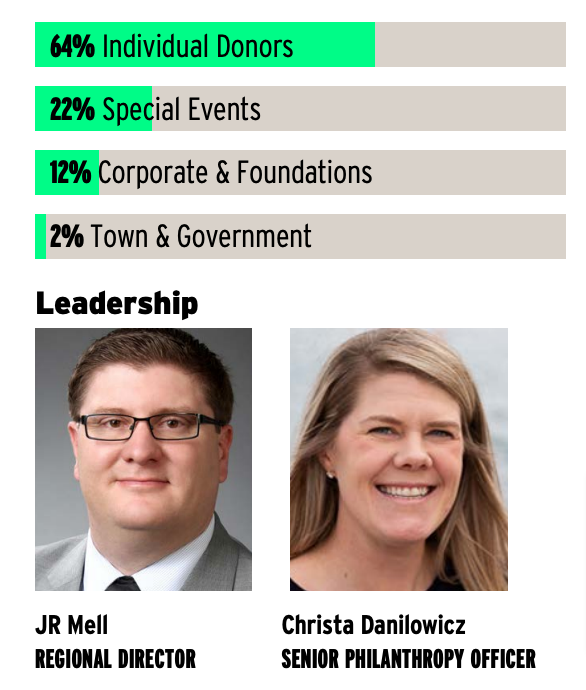
Volunteer Opportunities
Become a Big! With a waitlist that sometimes reaches over 100 children, the need for volunteer mentors, especially male mentors, is always needed. Join a Committee! Our fundraising committees are looking for individuals who are passionate about raising funds to further our mission. Join our Leadership! On both the Cape & MV we are seeking leaders to join our boards to help further our mission.

Cape Cod Museum Trail
PASSPORT TO CAPE COD FOR ART, HISTORY, AND CULTURE
The Cape Cod Museum Trail sponsored by First Citizens’ Federal Credit Union is both a physical journey, and digital initiative that provides history-related prism into Cape Cod Life and Culture. The mission of the Cape Cod Museum Trail is to support and promote the image, wellbeing and financial health of Cape Cod Museums, Cultural Centers and Art Exhibitions by creating opportunities for networking, collaboration and educational programs in Barnstable, Plymouth, Bristol, Nantucket, Norfolk and Dukes County in the State of Massachusetts.

Toolbox/Law at Work
How Would Proposed Non-Compete Agreement Affect Your Business

By Kathleen R. O’Toole & Brendan P. Kelley
On Jan. 5, 2023, the Federal Trade Commission (FTC) announced a proposed rule that, if enacted, would amount to a near-total ban on the use of non-compete agreements nationwide. If enacted as written, the FTC’s proposed rule would preempt current state laws on non-compete agreements and would require employers to rescind all existing non-compete provisions within 180 days of the publication of the final rule.
What are Non-Compete Agreements and How Are They Enforced?
Non-compete agreements are contract provisions prohibiting an employee from competing with an employer after the employment period is over. These agreements are generally governed by state law. While most states have passed statutes that impose some restrictions on non-compete agreements, those limitations vary widely. For example, three states – California, North Dakota, and Oklahoma – have banned non-compete agreements with narrow exceptions. Other states, including Maine and New Hampshire, prohibit non-compete agreements unless the worker earns above a certain threshold.
In Massachusetts, non-competition agreements entered into on or after Oct. 1, 2018 are regulated by statute. With limited exceptions, the non-compete period cannot exceed one year. In addition, employers are required to compensate prospective and current employees for their signing of a non-compete agreement. In particular, an employer is required to provide either “garden leave” (defined as 50 percent of the employee’s highest paid yearly wages over the past two years) or “other mutually agreed upon consideration” to a prospective employee for signing a non-compete agreement. Finally, employers must comply with procedural hurdles for non-competes to be enforceable, including providing notice of the right to counsel and providing at least 10 days’ notice before the effective date. These restrictions have generally caused Massachusetts businesses to curtail the use of non-compete agreements as a regular practice.
The Proposed FTC Ban on Non-Compete Agreements
The FTC’s proposed rule prohibits employers from imposing non-compete agreements on workers with limited exceptions, based on the FTC’s initial finding that non-compete agreements constitute an unfair method of competition. The news is making waves in the business community because, historically, the FTC has not attempted to regulate non-compete agreements between employers and employees.
While the proposed rule does not explicitly prohibit other forms of restrictive covenants, such as non-disclosure agreements or non-solicitation agreements, it recognizes that those clauses can be broadly drafted to have the same effect as a non-compete and can functionally serve as de facto non-compete agreements. As such, the proposed rule prohibits the use of any form of agreement that has the effect of prohibiting workers from seeking or accepting new employment.
Moving Forward
The FTC is accepting public comments on the proposed rule through March 10, 2023. Certain businesses, trade groups, and factions of Congress have already voiced opposition to the proposed rule and its broad scope. As a result, it is likely that the final form of the rule will not be as broad. In addition, undoubtedly lawsuits will challenge the FTC’s authority to ban non-compete agreements – which has long been left to individual states.
Against this backdrop, Massachusetts companies can take some affirmative steps to protect the integrity of their existing agreements. First, confirm that any current non-compete agreements are compliant with state law. Second, consult with counsel to strategize about how to use other contractual tools (e.g., non-solicitation and non-disclosure provisions) to protect their interests in the event the FTC rule is published.
Because non-compete agreements are already heavily regulated in Massachusetts, the enactment of the FTC proposed rule would likely not have a monumental impact in the Commonwealth. However, the rule would impact millions of workers across the country and would be a sea change in employment policy on a national scale.
Kathleen R. O’Toole and Brendan P. Kelley are attorneys at the Boston law firm of Conn Kavanaugh Rosenthal Peisch & Ford LLP. Feel free to send questions to kotoole@connkavanaugh.com or bkelley@connkavanaugh.com.
This column, which may be considered advertising under the ethical rules of certain jurisdictions, is intended as a general discussion of the topics covered, and does not constitute the rendering of legal advice or other professional advice by Conn Kavanaugh Rosenthal Peisch & Ford LLP or its attorneys.

Children Making Strides Positions Itself For Growth
By Carol K. Dumas

Up until the late 1990s, parents of children with Autism Spectrum Disorder (ASD) had few resources at their disposal.
ASD is a serious developmental disorder that impairs the ability to communicate and interact. Children often have difficulty with communication, difficulty with social interactions, obsessive interests and repetitive behaviors. Fitting into normal life and the classroom has been challenging if not impossible for these children, to say the least.
Today, early intervention, as well as behavioral, educational and family therapies are now considered a key approach to help reduce symptoms, support development and learning and help children with ASD to function.
One of the first companies to address the pressing need for better ASD services and treatment was Children Making Strides (CMS), based in Plymouth, founded in 1997 by Patricia Antonellis, who was seeking services for her son who was diagnosed with autism. Under her direction, CMS introduced parents to a novel form of therapeutic services that was just gaining momentum, Applied Behavior Analysis.
The company changed hands in the beginning of 2022 when Antonellis retired and sold to a family office led by Chaim Fiskus, who has a background in behavioral health administration.
“Our mission is to provide the finest quality ABA services to children who have been impacted by ASD, and to do so in a compassionate, professional manner,” he says. “By satisfying these children’s needs and providing personalized, skilled services, we aim to make an immeasurable impact on the lives of the children and their families.”
Children Making Strides’ services include home and center-based Applied Behavior Analysis programs, parent and community programs, school and community consultation and social skills groups. Clinicians work one-on-one with children to help them acquire critical skills.

While the overall mission remains essentially the same as when the company was founded, Fiskus has been making internal changes to improve the clinical quality of the program as well as the work environment for staff.
“Since the change in new ownership last year, we have invested a lot of time and resources into improving the clinical quality of our program, as well as the clinical support for our staff, new-hire onboarding and training, and our HR department,” Fiskus says. “We have also put a big focus on staffing/recruiting to ensure we bring in highly qualified staff who love doing what they do, and have a great time doing it! We have put a big emphasis on cultivating and encouraging a positive work environment, and can proudly say that CMS is a place where everyone is truly excited to come to work every day.”

Since new ownership took over, benefits/initiatives have improved, such as Paid Time Off, health insurance, 401(k), compensation and bonuses (including sign-on bonuses and referral bonuses). The staff base has increased by more than 50 percent. Learning centers are now located in Plymouth and Fall River and the company services the surrounding areas as well with in-home services.
“While CMS is constantly growing and improving, we continue to prioritize the clinical quality and support for our staff and the families we service, all the while never losing the personalized feel and appeal of a smaller ABA company,” he says. “Since we’ve taken over the company, we have emphasized staff training and staff support. Our plans are to expand across the state and maintain our industry-leading quality of the care and our level of compassion.”
Fiskus credits Clinical Director Kristen Bettencourt for providing top-notch clinical support to their BCBAs and Behavior Therapists, improving the staff training and significantly raising the quality of care. Her skill set was a perfect fit for Children Making Strides, he says, and the staff improvements he sought to make.
“She’s made a huge impact in our company since joining us in April 2022,” he says.
Bettencourt has focused on Applied Behavioral Analysis throughout her career, which included teaching in a substantially separate ABA Pre-K/Kindergarten classroom from 2011-2013 in Cambridge, while she was pursuing a master’s degree, and working as a behavior specialist/BCBA at the Northeast Arc in Danvers, where she oversaw in-home ABA therapy cases for clients 3- to 9-years old.
In 2015 Bettencourt relocated to South Carolina to work as the Director of Professional Development at the Unumb Center of Neurodevelopment. She was promoted to Director of ABA Services in 2016 and oversaw all clinical operations of the center from 2016-2020. Kristen relocated back to Massachusetts in August 2020 to work for Alternatives ABA as the Director of ABA Operations for the Plymouth center.
“We aim to make the most positive impact possible for the families that we serve,” said Fiskus. “I am so fortunate to see firsthand how our services can be a game changer for CMS families and how their lives have significantly changed for the better since they started here. The credit goes to our wonderful staff, and seeing that progress is what drives me.”
Children Making Strides
6 Resnik Road, Suite 210
Plymouth
508-563-5767
info@cmsaba.com
https://cmsaba.com

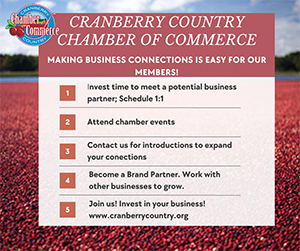
Amplify POC: Supporting An Often Under-Served Business Community
By Bill O’ Neill
Amplify POC is an effort to create something positive in response to tragic events.
“This all began in May 2020, after the murders of George Floyd, Breonna Taylor, Ahmaud Arbery and countless others,” said Amplify POC founder and CEO Tara Vargas Wallace. “The community was reaching out to me, looking for ways to support the Black and brown community. (POC stands for people of color.)
“I’ve worked with communities of color in the Cape Cod community for over 23 years. Over the years, I’ve fostered relationships of trust, and so people saw me as a leader. One of the topics that really garnered a lot of interest was supporting local businesses owned by people of color. Of course, as a Puerto Rican woman married to a Black man with three promising Black children, these issues are personal.”
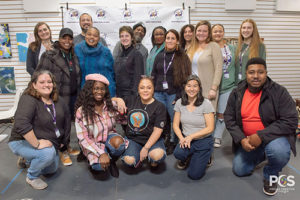
Having gained 501(c)3 non-profit status in July 2021, Amplify POC is “dedicated to amplifying the growth and success of historically excluded communities,” according to its mission statement.
“The word ‘amplify’ to me just sounds very impactful. It sounds strong,” she said. “I intentionally chose that word to elevate communities of color and our message behind why that is so important. Our mission of eradicating the racial wealth gap needs to be amplified. Initially, the goal was to amplify businesses, but it grew from there.”
“We want to eradicate the racial wealth gap by removing barriers created by systemic racism, which I know is huge,” she said. “It’s not going to happen in my lifetime, but that’s the vision.”
Amplify promotes racial equity by providing accessible resources and education that enhance visibility and increase sustainable ownership opportunities for communities of color. Those resources include workshops on Business 101, wealth building and financial empowerment, as well as leadership training and immigration advocacy.

From left, Amplify POC member Julio Daley, owner of Positive Vibes Clothing, Inc., Amplify POC founder and CEO Tara Vargas Wallace, and Amplify POC member Jaida Narkon, owner of J.Alexis Designs. (Photo by Joe Navas)
“We’re about to have a series of workshops with the Association of Realtors on how to identify when you’re being discriminated against in the home-buying process and how to advocate for yourself because that’s still happening today,” she said.
In addition to policy and legislative advocacy, Amplify POC hosts vendor events to increase awareness of local businesses owned by people of color on Cape Cod. Amplify is also in the process of launching an equity fund to provide micro grants to businesses and scholarships.
“It’s all about empowering our communities,” said Wallace, who was selected as one of Cape & Plymouth magazine’s 40 Under 40 honorees in 2021.
Her passion for social justice began when she started working at Housing Assistance Corporation, a nonprofit based in Hyannis, where she started at the front desk and, after several promotions, ran the family self-sufficiency program.
“I was 18 and coming out of homelessness. They helped me by giving me a job, and that’s where I started to learn all about a lot of the issues that had impacted my own life, including poverty, food insecurity and homelessness,” she said. “All of these issues are connected, and they’re all impacted by policies and legislation.”
Wallace eventually was asked to join HAC’s board of directors. “That’s when I realized how your voice and your story can really make an impact,” she said.

Through her career in human services, she built relationships with clients and nonprofit leaders across Cape Cod. She points to a handful of senior leaders at HAC as mentors, including Amplify board president Jeanne Morrison.
Other inspirations include author Toni Morrison and activist Angela Davis. “There are just so many badass women that I have read about and followed over the years,” she said with a laugh. She said Dr. Martin Luther King Jr. ‘s approach of “leading with love” is “really the center of my being.”
Beverley Roberts, who makes wearable art, is a recent addition to the Amplify Board of Directors. Her business, Mijiza Images, got a boost at Christmas markets and other Amplify events.
“Generally, people appreciate the quality of art coming out of Cape Cod, no matter what the color of the artist,” she said. “That’s one of the things that Tara has been showing. ‘Hey, we got this. We have the talent. We have the skill to organize and to create something good.’
“The Amplify events are well-planned and well attended. There are people who come because they want to support Black-owned businesses, and there are people who come because they’re just art lovers.”
Roberts said she also benefited from Amplify POC’s small-business workshops.
“There are other folks that you can talk to who share some of the same difficulties and challenges,” she said. “Knowing that there are other Black businesses going through the same struggle builds camaraderie.”
Amplify POC
amplifypoccapecod.com
info@amplifypoccapecod.com
P.O. Box 284, Hyannis, MA 02601
Toolbox/Accounting
Tips For Tax Season

By Robert Martin
One of the most important functions of business records is to prepare you (or your accountant) for filing tax returns.
To help make things easier for yourself, you may want to set up a record-keeping system that captures information in a way that matches the demands of the IRS.
If you are a sole proprietor, you’ll want to familiarize yourself with the requirements for completing Form 1040, Schedule C.
Here are some tax considerations to remember in relation to your record-keeping system design (for more information, see IRS Publication 334, “Tax Guide for Small Business”):
- If your small business is one that carries no inventory, then you can generally use the cash method of accounting.
- If you produce, purchase, or sell merchandise, you typically must keep an inventory and use the accrual method of accounting. However, there are exceptions to this rule if you are a “qualifying taxpayer” or a “qualifying small business taxpayer.” You are a qualifying taxpayer if your average annual gross receipts are $1 million or less and your business is not a tax shelter. You are a qualifying small business taxpayer if your average annual gross receipts are less than $10 million; you are not prohibited from using the cash method as defined by Section 448 of the Internal Revenue Code; and your business is an eligible business as defined in IRS Publication 538.

- The business-related portion of deductible car or truck expenses may be the actual expenses incurred (including gas, oil, tires, repairs, insurance, depreciation, and rent or lease payments), or you may elect to take the standard mileage rate.
- Small businesses may elect under IRC Section 179 to expense the cost of qualified property, rather than recover such costs through depreciation deductions.
- You may deduct any contributions to employee benefit plans (such as health insurance plans and other fringe benefits) or contributions to pension or profit-sharing plans that are for the benefit of employees.
- You may deduct the cost of business supplies purchased during the tax year.
- You may deduct the cost of utilities associated with business use.
- You can deduct professional fees, such as those paid to your accountant.
Remember to save any records and underlying documentation, such as invoices or receipts, relevant to your tax return for at least three years. And don’t hesitate to talk with your accountant or tax advisor for more guidance.
Robert Martin, CCSCS, CIMA, is an Infinex Investment Executive at Cape Cod Financial Services at The Cooperative Bank of Cape Cod. He can be reached at 508.568.1250 or rmartin@infinexgroup.com.


Cape Cod Healthcare Blood Mobile Back on the Move
After a three-year hiatus, the Cape Cod Healthcare Blood Mobile is up and running again, kicking off the first of many future mobile drives on Jan. 30 in Brewster.
Blood donations made through Cape Cod Healthcare’s donation program stay on the Cape to help family, friends and neighbors in need of this vital resource. The Blood Mobile makes giving blood even easier, as it is able to cover locations Cape-wide. “We are very happy to have it back on the road,” says Jonathan DeCoste, Senior Blood Donor Recruiter at Cape Cod Healthcare. “It will allow us to go back to places, such as Wendy’s and Cape Cod Five branches, that we haven’t been able to go to for a long time. Many companies, organizations and places of worship weren’t able to host blood drives any longer because they didn’t have the inside space we needed to set up our equipment.”
The Cape Cod Healthcare Blood Mobile was purchased over seven years ago with funding support from community partners, including Cape Cod 5, Rotary Clubs of Cape Cod, Wendy’s restaurant and Rick Roy Construction. Its first drive was held on Sept. 12, 2015, at Seaside LeMans in Mashpee, but the pandemic put the brakes on the 40-foot motor coach in March 2020.
“Now that we have the Blood Mobile back in operation, we are slowly but surely converting some blood drives to the Blood Mobile, such as the Brewster Police Department blood drive in February,” says DeCoste.
The Cape Cod Blood Mobile can go directly to a business, organization, place of worship, school or area in the community to make it as convenient as possible for people to donate. The Blood Mobile is state-of-the-art and completely self-contained. The interior is set up much like the blood drives run indoors. Inside the Blood Mobile, donors will find the same phlebotomists, a waiting area, two confidential medical history booths, four blood donation beds and a refreshment area.
“In approximately one hour, a donor can complete the entire donation process, including health history, donation and post-donation refreshments,” says DeCoste. “The Cape Cod Healthcare Blood Mobile can accommodate groups of many sizes and we can tailor the blood drive to suit any host’s needs.”
Upcoming mobile blood drives in February include stops at Northside United Methodist Church, Brewster Police Department and Barnstable Police Department.
Appointments are required at all blood drives.
To make a donation appointment for an upcoming blood drive, visit the Blood Donor Portal: https://srt.capecodhealth.org/donorportal/
To make an appointment for the Nicholas G. Xiarhos Blood Donor Center at Cape Cod Hospital, call 508-862-5663.
To schedule a mobile drive at your organization, business, school or place of worship, please contact Jonathan DeCoste, Senior Blood Donor Recruiter at 508-862-5378 or email jdecoste@capecodhealth.org
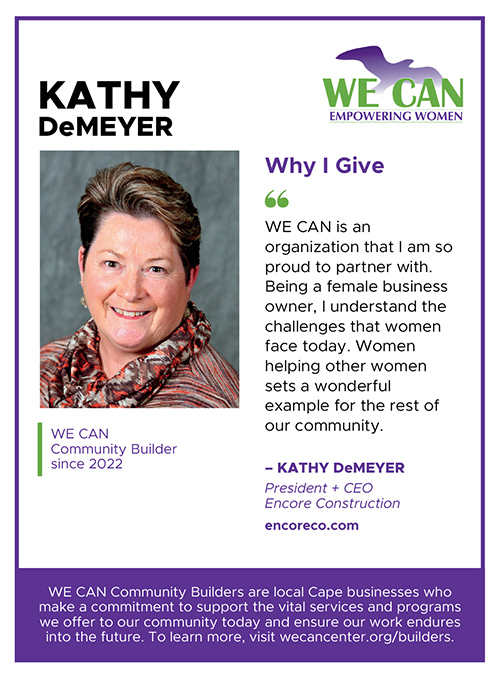

Defining Leadership Styles, Part 1

By Bob Cody
Have you ever wondered why some leaders are more successful than others? How can some leaders maximize their organization’s performance better than others? Why are some leaders more trusted or have better relationships with their staff? The answers may lie in their leadership style.
A leadership style refers to a leader’s methods and behaviors when directing, motivating, and managing others. Knowing your style is important as it will determine how you affect those around you and how effective you will be. It is important to note, though, that there is not one perfect style. Most good leaders have a fundamental style or approach but know how to change it, and what to change it to, depending upon the situation they are in.
There are 10 different leadership styles. Each is defined by characteristic behaviors. The 10 styles or types are Autocratic, Laissez-Faire, Democratic, Strategic or Visionary, Transformational, Transactional, Coaching, Bureaucratic, Servant, and Pacesetter. This month we’ll focus on the first five.
An Autocratic leader is one who makes decisions without any input from anyone else. Employees are expected to follow the decision regardless of what it is, what the deliverables are or what the timeline is. Autocratic leadership can be useful in organizations with strict operating guidelines or in a heavily regulated or compliance-focused field. It may also prove useful with employees with little or no experience but it may also lead to a stifling of creativity. Autocratic leaders are self-confident, self-motivated, follow the rules and value highly structured environments.
The opposite of autocratic is Laissez-Faire leadership, where the leader focuses on delegating many tasks to team members while providing little or no supervision. It can be effective in organizations where there is a very knowledgeable workforce that requires very little oversight, but it can lead to productivity losses if employees need motivation, boundaries set, or aren’t clear on the expectations. Laissez-faire leaders effectively delegate, promote an autonomous workplace, and foster leadership qualities in their team while providing the resources and tools their staff needs to handle the delegated tasks. One characteristic of the laissez-faire leader is they often work on ‘special’ projects as their team is focusing on the immediate tasks.
Democratic leadership sees the leader making the final decision but the decision follows input from all of the employees. It is effective as it allows everyone, including lower-level employees, to have input into what the organization does. It supports employee development, engagement, and promotes workplace satisfaction. Democratic leadership drives discussion and participation, making it an excellent style for organizations focused on creativity and innovation. Democratic leaders are flexible, value the group’s input and are good at mediating and negotiating.
Strategic/Visionary leaders have the ability to focus simultaneously on current operations and long-term growth opportunities. This style allows the leader to support multiple types of employees while both driving progress and ushering change. Leaders of this type tend to inspire employees while earning trust for championing new ideas. Strategic/visionary leaders establish a strong organizational bond. They strive to foster confidence among both direct reports and colleagues. This type of leadership is especially valuable in small, fast-growing companies or those undergoing a restructuring.
A Transformational leader is always focused on improving the company’s direction and focus and is constantly pushing employees outside of their comfort zone. Employee coaching is critical for a transformational leader as the focus is continually challenging employees to maximize their abilities. It is very effective in growth-minded organizations as it motivates employees by giving them opportunities to reach their potential. The transformational style is similar to the coaching style in that it focuses on clear communication, goal-setting and employee motivation. The difference, though, is that the transformational leader is driven by a commitment to the organizational objectives. As transformational leaders spend much of their time on overarching goals, the style works best with teams that can handle many delegated tasks with limited supervision.
Just assessing these five, we can see where there are clear differences and similarities. To see what fits best for you, try out different approaches based on the situation you find yourself in and pay close attention to the outcomes. We’ll take a look at the other five next month.
Bob Cody, executive director of Leadership Cape Cod, brings over 25 years of leadership experience in corporate, academic and nonprofit organizations. He is Chief Executive Partner of Innoreate, a business consulting firm, and was a member of the Cape Leadership Institute class of 2012. He serves as a member of the Board of Directors of CLI, Open Cape, Cape Cod Technology Council and the Greater Hyannis Chamber of Commerce, where he is the incoming Board Chair.
